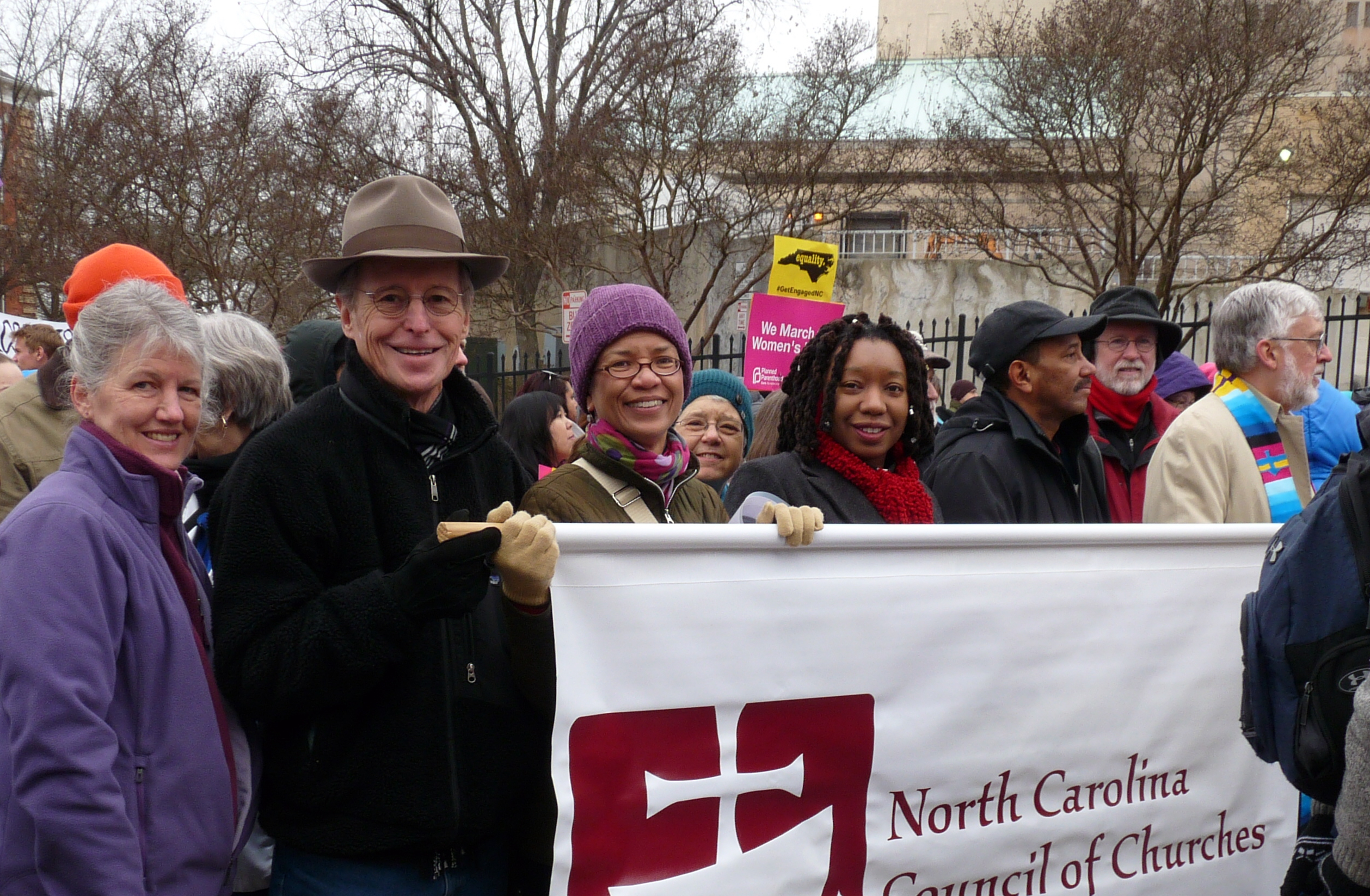I had two conversations recently with members of a congregation which was voting on whether or not to join the HKonJ Coalition. Those conversations have reminded me that it’s helpful from time to time to review the concept of the separation of church and state and to discuss the tax status of churches. Those are two separate issues, and I will deal with them in two separate blogs.
For any of you not familiar with HKonJ, let me give you some background. First, “HKonJ” is shorthand for “Historic Thousands [K] on Jones Street [where the General Assembly is located]”. It was created more than seven years ago to advocate for an agenda of progressive social justice. HKonJ came into being at the call of the Rev. William Barber, president of the state NAACP and pastor of Greenleaf Christian Church, Goldsboro. The NC Council of Churches has been a partner from the first; Barbara Zelter, then a staff member at the Council, represented us in the formative meetings. It had a 14-point agenda, which you can see by clicking here. And it is made up, in addition to the NAACP, of more than 150 other nonprofits, both faith-based and secular. You can see the full list by clicking here. HKonJ has sponsored an annual “People’s Assembly,” which has included a march and rally in downtown Raleigh, each February since 2007. For those of you who are Republicans or who are worried that HKonJ is an anti-Republican organization, let me assure you that it was founded when both houses of the General Assembly were controlled by Democrats, and the Governor was also a Democrat. It has been non-partisan in its call for greater support for social justice in our state and bi-partisan in its criticism of the state’s leadership for ignoring the needs of vulnerable people.
Now, back to the question at hand.
People within the congregation mentioned above have questioned the tie to HKonJ for fear that it would jeopardize the church’s tax-exempt status and/or that it would be a violation of church-state separation. Let me say at the outset that I know these people, and they are in sympathy with the issues and the goals of HKonJ. They are not raising these concerns as stalking horses for tea-party sympathies. They are not, to say the least, tea partiers. They would be personally in agreement with most or all of the 14-point HKonJ agenda. They are personally enthusiastic participants in HKonJ.
In this blog, I will deal with the tax question, which is easy and clear; in a second blog, I’ll take up the church-state issue.
Here’s the short version about tax exemption: It is virtually impossible for a church or other religious nonprofit to lose its tax-exempt status because it is engaged in advocacy on issues, whether through HKonJ or the NC Council of Churches or the NC Right to Life coalition or any other entity, or is acting entirely on its own. Here’s why:
From the perspective of tax laws and regulations, there are three types of involvement on public policy issues: education, advocacy (calling on elected officials to vote for or against specific measures; often labeled “lobbying”), and electioneering (supporting or opposing candidate for public office).
Let’s take the current situation on Medicaid expansion to provide examples of these three terms. Any of the following statements would be education:
- “The Affordable Care Act (a.k.a. Obamacare) allows states to expand their Medicaid program.”
- “The ACA requires the federal government to pay 100% of the costs of Medicaid expansion for the first three years and 90% after that.”
- “North Carolina’s legislators and Governor have opted not to expand Medicaid.”
- “As many as 500,000 North Carolinians who could have health care won’t have it because of their decision.”
A statement of advocacy would be: “Contact your legislators and the Governor and ask them to support a bill expanding Medicaid.”
Electioneering would be: “Vote to re-elect Sen. Smith because she supported Medicaid expansion.” Or “Throw Rep. Jones out of office because he doesn’t care if low-income people have healthcare.”
Here’s what the law says about what tax-exempt organizations can and cannot do:
- They can do an unlimited amount of education.
- They can do an “insubstantial” amount of advocacy. As defined by court cases, “insubstantial” means that advocacy amounting to no more that 5% of the nonprofit’s activities is OK, more than 20% is not OK, and in-between is uncertain.
- They can do zero (zip, nada, nothing) of electioneering.
To apply this to the NC Council of Churches, congregations, and other nonprofits doing advocacy work: We must be exceptionally careful to avoid electioneering; we do not speak for or against candidates for office. But we can and do address issues through both education and advocacy. I don’t know of a church or other faith-based organization in danger of exceeding the 5% limit on advocacy. Keep in mind that that is 5% of the church’s entire budget, staff time, etc., and remember that an activity counts as advocacy only when it asks officials to act in a certain way on a specific measure.
One final point here – these laws apply to all nonprofits with a 501(c)(3) status. Included in this tax-exempt category are churches, schools, orchestras, hospitals, food banks, animal shelters, and a host of other non-profits. Churches are treated no differently on these matters, and church-state separation is not relevant here.
In my next blog, I will address the church-state question directly.

